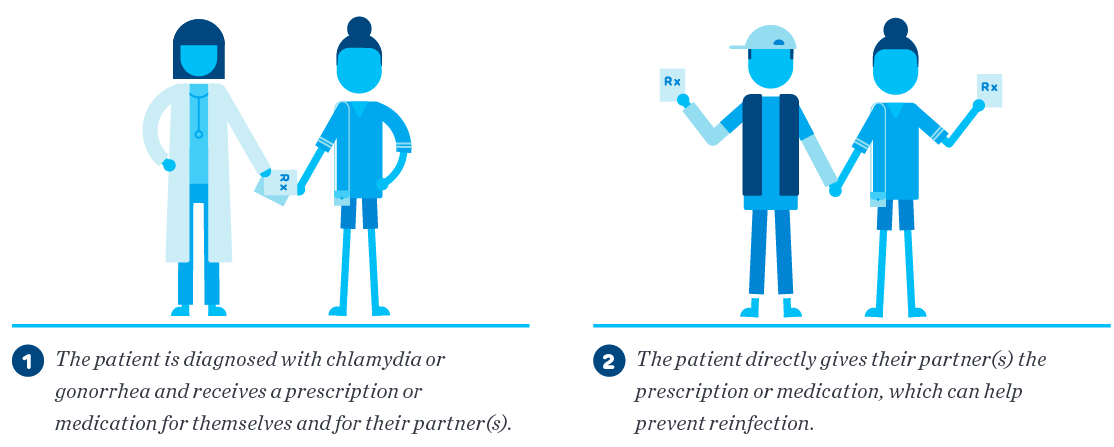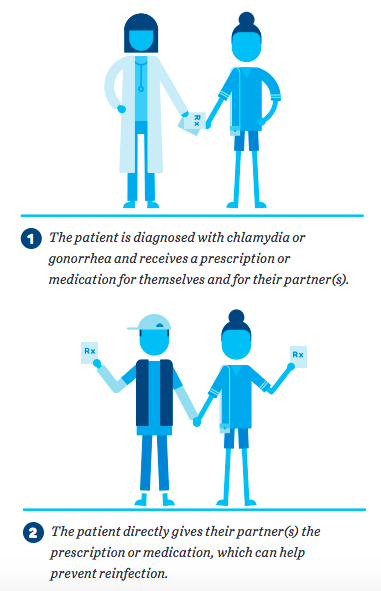Understanding the Policy, Legal and Practice Barriers to Treating the Partners of Adolescents with Sexually Transmitted Infections
Statement of Problem
Even though adolescents and young adults account for only one quarter of the sexually active population, they acquire half of all new sexually transmitted infections (STIs) each year in the United States. Expedited Partner Therapy (EPT), the treatment of the sexual partner(s) of a patient with an STI without being seen by a medical professional for an exam or counseling, is an effective method in preventing reinfection. However, due to a variety of barriers, and potentially augmented by a complex policy environment, EPT is not used frequently in treating adolescents with STIs.
Description
Expedited Partner Therapy (EPT) Process
Expedited Partner Therapy (EPT) Process


Expedited partner therapy (EPT) is a patient-delivered partner therapy used to help prevent reinfection of chlamydia or gonorrhea by providing the patient with extra maedication or a prescription to give to their sex partner(s) who are unwilling or unable to seek treatment.
This project aims to understand current practice with respect to EPT and adolescents, potential barriers to provision of EPT, and provider knowledge of state legal policy around EPT. To learn about providers’ knowledge, we will survey a sample of providers who likely treat adolescents in three differing state legal environments where EPT is: (a) explicitly legal; (b) permissible but not directly referenced in law; and (c) potentially allowable. The legal and policy teams reviewed laws and policies to categorize states in these three categories, and then we randomly selected states for the study survey.
Ultimately, we aim to inform program and policy changes to broaden the provision of EPT to adolescents and ensure that all adolescents can receive care to meet their unique health needs.
Next Steps
We plan to share results at national meetings and also partner with local organizations to implement and evaluate programs focusing on providing EPT to adolescents.
This project page was last updated in January 2019.
Suggested Citation
Children's Hospital of Philadelphia, PolicyLab. Understanding the Policy, Legal, and Practice Barriers to Treating the Partners of Adolescents with Sexually Transmitted Infections [Online]. Available from: http://www.policylab.chop.edu [Accessed: plug in date accessed here].
